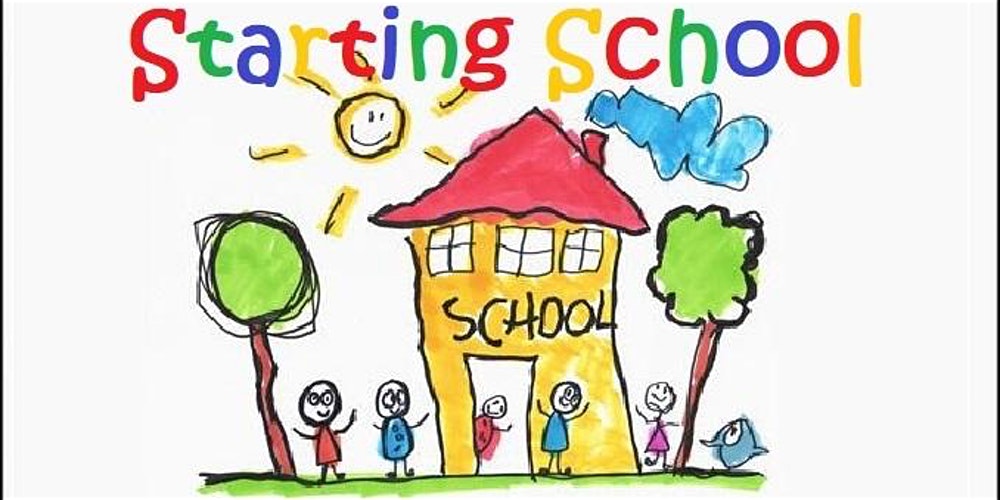Hello! I’m Charlene. By profession, I’m a psychologist and family therapist. I’m a mother of two – Aurora (3 years old) and Beatrice (1 year old). I’ll be writing the first blog from the point of view of a professional as well as that of a parent. The goal is to share ideas and support one another, appreciate ourselves for all the work we’re doing, and keep in mind the importance of being good enough, not perfect! This is a place where we don’t judge one another and where we understand that there is no perfect path. We invite you to write your thoughts down below and share this blog with other parents!
As September nears, many parents start bracing themselves for the start of a new school year. From my professional and personal experience, this transition could be easier for those parents who are already used to the school system and have children who have already experienced the early school years since they’d already know what to expect. Apart from that, there’s a greater chance that the children would have gotten more used to what is expected from them. On the other hand, those parents of young children who’ll be entering school for the first time may benefit more from support to be in a better position to help their children through this transition. In fact, this blog will address a few suggestions some parents may find useful during this period.
First and foremost, please note that these are only suggestions; each child is unique, and we may all be going through different situations. Therefore, although they’re positive suggestions, this doesn’t mean that they’ll always work for every person. Nevertheless, it’s good to keep ourselves open to experiences as well as knowledge based on experience and research.
These are a few ideas I want to share with you today:
- It’s important that, as a parent, you understand your own feelings about this transition. Your son or daughter is no longer a baby and is growing up. This is an exciting time for both of you, and it may also be a period of anxiety and fear for some. As parents, it’s important that we recognise how we are feeling and try to calm down. Children are like sponges, and they can absorb each and every emotion we feel. There’s a greater chance that young children adapt to school in a calmer manner if we exude confidence, security, and positive certainty that everything will be alright. For this reason, think about what helps you calm down in moments of change (reading, sports, communication with close friends, etc.). It’s normal that, as parents, we’re moved when we see our children in their uniform, ready for their first day of school … get your tissues ready 😊 We can explain to our children that they’ll be going through a new and fun experience and that we feel proud when they show us how much they have learnt.
- It’s good to speak to our children beforehand about what school is and what they’ll be doing. Although children aren’t always able to communicate their thoughts and emotions, they have lots of internal questions and emotions, especially when it comes to new experiences, such as school. We could also use games as a means of helping children understand different concepts, process situations, and express themselves better. For example, we could use dolls or maybe even toy animals and pretend that they’re going to school for the first time. Some things we could say during these types of games are: “This bear is going to school for the first time today. How do you think he’s feeling?”, “He’s feeling scared because he’s going to be far away from his mum and dad; how can we help him?”, “Mummy and Daddy Bear tell him they love him, that they’ll take him to school, and that they’ll come back to pick him up. They know he’s feeling anxious, but at the same time, they tell him that this is a new adventure where he’ll play a lot and make new friends!” It’s interesting to note that young children may feel more comfortable expressing themselves through games rather than words. That’s why it’s important to understand our children and give them the individual space needed to express themselves with us in any way they choose.
From our end, as parents, it’s important to empathise with our children and encourage them. For example: “I understand that you’re feeling scared. I’m here for you. I’ll come back to pick you up when school is over. At school, you’ll be with your teachers, and you’ll do lots of nice things!”

It’s also important to properly send off our children when we are at the school gate rather than quickly running off. This is because there’s a greater chance that children feel more anxious and insecure when their parents disappear without sending them off lovingly. We should also ensure that our children are in good hands and believe in the great skill of the teachers, who have vast experience in this sector.
If you have the opportunity to visit the school or at least show pictures of the school beforehand, this can help them understand where the school will be and encourage them to communicate further about it. If you have the opportunity to find out who the teacher will be beforehand, you may also start using the teacher’s name with the children so that they familiarise themselves better.
Nowadays, creating class group chats for parents on Facebook or WhatsApp has become a trend. If one has the opportunity to do this, one may also make plans with some of the other parents to organise play dates before or during the school season in order to help the children get to know each other better.
Apart from that, another precious resource we can use is the reading of books and stories. There is a plethora of books out there from which one can select what best complements their family situation. Personally, with my older daughter, a book I found extremely useful is: I Love You All Day Long by Francesca Rusackas. Another great book is: The Kissing Hand by Audrey Penn. These books are to be read by the parents together with the children to help them better understand and express their emotions surrounding school.
I hope this blog has been helpful to you. Feel free to share with us your own ideas and suggestions too!
Many thanks,
Charlene

Charlene
Clinical Psychologist and Family TherapistClinical Supervisor


